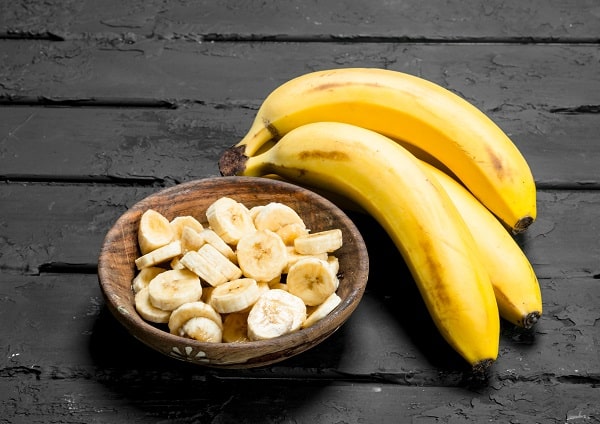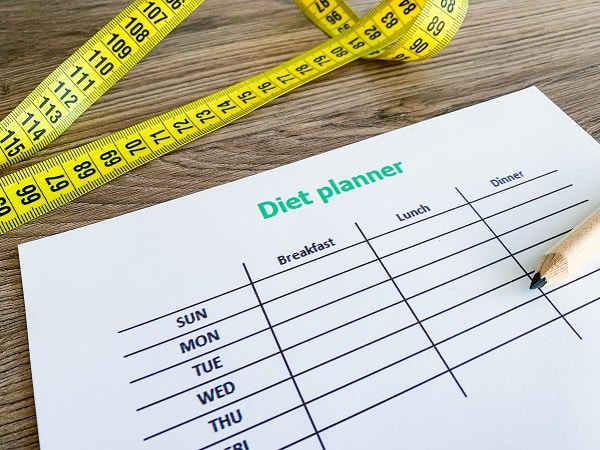Bananas are a staple in many households, often considered a quick and convenient energy source. However, they are frequently met with skepticism when it comes to weight loss. The common perception is that bananas are high in sugar and calories, making them a less-than-ideal choice for those looking to shed pounds. But is this the case? This article aims to dissect the various aspects of bananas—from their nutritional content to their impact on metabolism—to answer the question: Are bananas good for weight loss?
Contents
Nutritional Breakdown of Bananas

Bananas are more than just a sweet treat; they are packed with essential nutrients. A medium-sized banana contains approximately 105 calories, primarily from carbohydrates. It offers minimal protein and almost no fat. While the calorie count may raise eyebrows, it’s crucial to delve deeper into the nutritional profile to understand its impact on weight loss.
Beyond calories, bananas contain essential vitamins and minerals such as potassium, C, and B6. They also contain much dietary fiber, particularly pectin and resistant starch, in less ripe bananas. These micronutrients and fibers play a significant role in overall health, which can indirectly benefit weight management.
The Sugar Controversy

One of the most contentious points about bananas is their sugar content. A medium-sized banana contains about 14 grams of sugar, a mix of glucose, fructose, and sucrose. Critics argue that this sugar content can lead to weight gain, but it’s essential to differentiate between natural and added sugars. Unlike sugary snacks and beverages, natural sugars come with fiber, vitamins, and other nutrients.
The glycemic index (GI) of bananas varies depending on their ripeness. A ripe banana has a higher GI than a less ripe one, which will cause a quicker spike in blood sugar levels. However, when consumed in moderation and as part of a balanced diet, the sugar in bananas is unlikely to significantly affect weight loss.
Role of Fiber in Weight Loss

Fiber is crucial for anyone looking to lose weight, and bananas offer around 3 grams of fiber per medium-sized fruit. Dietary fiber contributes to feelings of fullness, which can help to control appetite and reduce overall calorie intake. The fiber in bananas is predominantly soluble, which slows down the emptying of the stomach and helps to manage blood sugar levels.
Compared to other fruits like berries, pears, and oranges, bananas may not be the highest in fiber, but they still make a valuable contribution. Weight loss is not just about single nutrients but the overall diet quality. Incorporating bananas as part of a high-fiber diet can aid in weight management, provided they are consumed in appropriate portions.
Bananas and Metabolism

Metabolism is a key factor in weight loss, and certain components in bananas can positively influence metabolic rates. Bananas are a good source of vitamin B6, which is essential for optimizing metabolic processes like protein metabolism. Additionally, the potassium in bananas helps in cellular functions, including energy metabolism.
However, it’s important to note that while bananas can contribute to a healthy metabolism, they are not a magic bullet for weight loss. The research directly linking bananas to increased metabolism is limited. Therefore, while they can be part of a healthy diet that supports a more robust metabolism, relying solely on bananas for weight loss would be misguided.
Portion Control and Timing

Regarding weight loss, portion control is critical, and bananas are no exception. A medium-sized banana is generally considered one serving, providing around 105 calories. Consuming multiple bananas in one sitting could lead to excess calorie intake, which is counterproductive for weight loss. Therefore, it’s essential to be mindful of portions when incorporating bananas into a weight loss plan.
Timing also plays a role in how bananas can affect your weight. Eating a banana before a workout can provide a quick energy source without the heaviness of eating a large meal. On the other hand, consuming a banana late at night could contribute to weight gain, especially if it exceeds your daily caloric needs. Balancing the timing of banana consumption with your overall dietary and activity patterns is key.
Bananas in Popular Diet Plans

Bananas have a varied reputation across different diet plans. In the Paleo diet, for example, bananas are often avoided due to their higher sugar content than other fruits. On the other hand, they are a staple in many plant-based or vegan diets because they offer quick energy and are rich in essential nutrients.
In ketogenic diets, bananas are generally excluded because of their higher carbohydrate content, which can interfere with ketosis. However, some flexible keto versions may allow for small portions of bananas. The point is the suitability of bananas in your diet may depend on the specific dietary guidelines you are following. Always consult a healthcare provider or a certified nutritionist to see how bananas can fit into your personalized diet plan.
Real-world Testimonials and Studies

Anecdotal evidence about the role of bananas in weight loss is mixed. Some people swear by incorporating bananas into their diet, citing increased feelings of fullness and better digestive health. Others argue that bananas have contributed to weight gain or stalled their weight loss efforts, often pointing to the fruit’s sugar content as the culprit.
Scientific studies on the direct impact of bananas on weight loss are limited but growing. Research suggests that the resistant starch in less ripe bananas could aid in weight loss by increasing feelings of fullness and promoting fat oxidation. However, more research is needed to draw definitive conclusions.
Alternatives to Bananas for Weight Loss

If you’re skeptical about including bananas in your weight loss journey, plenty of other fruits and snacks should be considered. Berries like strawberries, blueberries, and raspberries are lower in sugar and calories, making them a great alternative. Fruits like apples and pears also offer a good amount of fiber and are lower in calories than bananas.
For those looking for low-calorie snacks that are not fruits, options like carrot sticks, cucumber slices, or a handful of nuts can be good alternatives. These foods offer essential nutrients and are less calorie-dense, making them more aligned with weight loss goals for some individuals.
The Bottom Line
Bananas are a nutrient-rich fruit that offers a range of vitamins, minerals, and fiber, but they also contain their share of sugar and calories. When it comes to weight loss, the key is moderation and balance. While bananas can be a part of a healthy, balanced diet aimed at weight loss, they should not be the sole focus. Portion control and timing are crucial factors to consider. The role of bananas in popular diet plans varies, and their impact on weight loss is still a subject of ongoing research. Ultimately, whether or not to include bananas in your weight loss plan is a personal choice that should be made in consultation with healthcare providers. Like any other food, bananas have pros and cons, and understanding them can help you make an informed decision.


